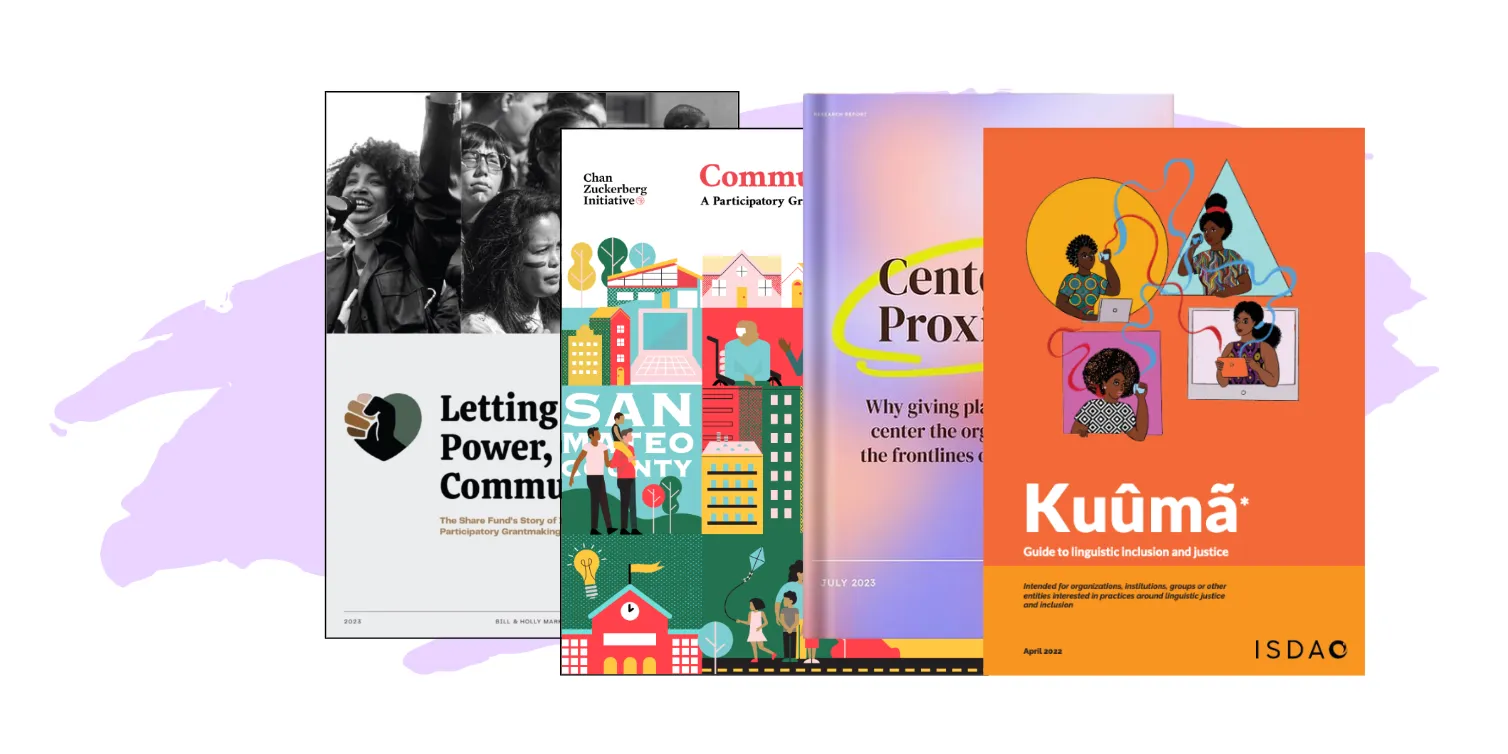This is a personal story.
Very rarely do people change their minds about something significant, and even more rarely do people admit to this. There’s a vulnerability in sharing a story like this, especially online, where an openness to changing your mind may make you appear suspicious or weak, lacking a solid core.
But I wanted to share an anecdote that helps explain why participatory grantmaking is so important to me. It’s partly because it changed my mind about sex work.
My feminist journey
I’ve always called myself a feminist, even as a teenager, when this identity was even less cool than my identity as a goth. As soon as I got to the city I got involved in ‘feminist things’. I was the Stop Violence Against Women coordinator for my local Amnesty group, I was part of various mobilisations, and I got a job I loved working for a women’s human rights organisation.
By the late 2000s/early 2010s I found myself part of a relatively radical tradition. Despite being personally ‘pro-sex’ (read: happy slut), I tore down posters for strip clubs, defaced adverts for pole-dancing classes, and attended workshops on the evils of porn, convinced that these were markers of a rampant rape culture.
But despite railing against the rising use of ‘pimp’ as a verb, I hadn’t really fully engaged with the theory and issues of sex work.
Whilst I’d been active in protests against misogynistic violence, and saw prostitution as part of this, I didn’t fully consider the abolition of prostitution until the 2010 Feminism in London conference, where a plenary panel was dedicated to this issue.
The people on stage included someone who had survived trafficking and the inspiring feminist campaigner Denise Marshall, both of whom spoke in horrific detail about the violence inherent in sex work. I clearly remember vivid descriptions of brutality, as well as statistics about the numbers of women trafficked (‘Tonight, 5,000 young people will be exploited on our streets’) and the need to prosecute the men who abused them. The audience were deeply disturbed. I remember seeing women leaving mid-way through because they were crying so much. I myself cried too, when I tried to convey the evils of the industry to my partner that evening.
From that point on, I’d try to convince anyone who’d listen about the scourge of the sex industry. Prostitution was rape, and the rapists should be prosecuted. Instead, we should have the enlightened ‘Nordic model’, a policy goal for criminalizing clients rather than the women they exploited. This approach would halt the commodification of women’s bodies!

A new experience
Around the same time, I had become disillusioned with the charity sector that I was working in. It felt ineffective and unjust. Fortunately, I came across and got involved with the Edge Fund, a community that changed my perspective deeply.
The Edge Fund is “a grantmaking body with a difference”: supporting efforts to achieve social, economic and environmental justice, and to end imbalances of wealth and power. A core tenet of the fund is self-determination: ‘Nothing about us without us is for us’.
Edge’s participatory grantmaking model sees an ‘Advisory Group’, consisting of members of the community that the proposal intends to serve, doing a first review of the proposals to determine basic eligibility. For example, disabled people would be the first to review disability groups’ proposals, and remove those from non-disabled people acting ‘on behalf of’ disabled people.
I joined the Edge Fund’s first Facilitation Group – volunteers who, with staff, manage the day-to-day implementation of membership decisions. This Facilitation Group was charged with resolving an issue about proposals received from sex workers.
The fund’s first rounds of grantmaking included proposals from sex workers, and these were being reviewed by the Women’s Advisory Group (now the Women and Oppressed Genders Group) for initial input. After reviewing the proposals, several Advisors felt those from sex workers should be removed from consideration, commenting that they ‘promote gender-based violence’.
The Facilitation Group had a long discussion about what to do about this. Whilst many were convinced that sex work is work and that these comments should be removed, I argued that many feminists held that sex work is violence and that we couldn’t simply dismiss these views, particularly when setting up a participatory fund. But eventually the issue was resolved by one aspect that we all agreed on: if we’re going to take our values of self-determination seriously, only people with direct experience of sex work can decide what’s best for them.
This point concluded the debate for me. In most philanthropy, decisions about where money goes are made by people with no direct experience of these issues themselves. Participatory grantmaking centres the people most affected by the decisions. If a group of sex workers had submitted a proposal, non-sex workers like me couldn’t make claims against it, regardless of how strong our views are.
Whilst I know, particularly as an East-Asian women, what it is like to be hyper-sexualised and objectified, I had no idea what it is like to be a sex worker. So even if I didn’t agree with the substance of the proposals – that sex work should be considered work like any other – I agreed with Edge’s founding principles of autonomy, self-determination and agency. These groups should not be blocked from applying.
Voices of sex workers
In the next grant round, several sex worker proposals were reviewed, and a few scored highly enough to receive a grant. This meant being invited to the final grant meeting that Edge holds at the end of each funding round. Here, people from the funded groups meet with Edge members, donors and previous grantees to share their struggles, campaigns and tactics. The intention is to build solidarity, community, and a sense of shared struggle.
It was at this meeting that I heard from the sex workers directly about their history of organizing for their rights, and the need for recognition and support from other movements. When I asked about the Nordic model, they explained how anything that criminalizes clients also punishes sex workers. When I asked about porn, they pointed out that the legislation around porn creates hierarchies of pleasure, with ‘normal’ sex being straight, white, and male-centric. They noted that for many people, including themselves, stripping offered a better livelihood than many alternatives.
The picture presented of sex work that certainly wasn’t rosy. But it also wasn’t reductively brutal. It was nuanced, well-evidenced and - most importantly for me at that time - coming from conversations with people talking about their direct lived experience of having to rely on providing sexual services for money. And it made me realise that I didn’t really understand this world. I needed to shout less and learn more.
So I decided to read and listen more, focusing on listening to voices of sex workers themselves. I met folks from the participatory grantmaker by-and-for sex workers, Red Umbrella Fund. I read Revolting Prostitutes. I spoke to sex workers I met through various activist events, through friends, and at events like The World Transformed. I learned that in the main part, sex workers fight against legislation supposedly designed to save them by well-meaning non-sex workers.
In recent months some of the first rigorous academic research on the Nordic model was released. This demonstrated that while criminalization of clients may decrease incidences of sexually transmitted diseases, it increases violence against women.
Of course, learning this won’t change everyone’s minds. Often you are either convinced that sex work is work, or you aren’t. This solid evidence won’t convince the abolitionist that they should stop advocating for the Nordic model, any more than they are able to listen to the voices of sex workers themselves asking them to stop.
But for me, the foundational principle of Edge and other participatory grantmakers is to trust those who are most affected by the issue. And for me at least, participatory grantmaking has changed my mind about sex work.










.webp)

.webp)
%20(1280%20x%20720%20px)%20(41)%202.webp)
%20(1280%20x%20720%20px)%20(38).webp)
%20(1280%20x%20720%20px)%20(31).png)


%20(1280%20x%20720%20px).webp)











.webp)






.webp)
.gif)

.webp)


.gif)












